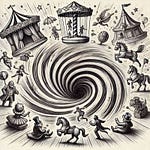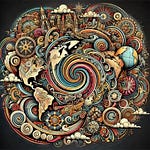This morning, the High-Level week of the 78th session of the United Nations General Assembly gets under way in New York. This is the annual gathering of the heads of state and government of most of the UN’s member states. Notably absent this year, however, are four of the five permanent members of the UN Security Council—Russia, China, and France are not sending their presidents, and neither is the UK prime minister attending.
What will the main focus be for the General Assembly?
Two items will likely dominate the 78th UN General Assembly High-Level Week—the war in Ukraine and progress on the Sustainable Development Goals, on which there is a special summit in New York that is expected to conclude with the adoption of a political declaration today.
Will the war in Ukraine dominate?
The war in Ukraine will probably not dominate, but it will be a key item on the agenda, given especially that Ukraine's president, Volodymyr Zelensky, is one of the speakers scheduled to address the General Assembly on the first day of the debate. The war in Ukraine will also be critical in more indirect ways. Many countries have been affected by the war, including in terms of their food security, in terms of the inflation of energy prices, and in relation to the increasingly tense and fractious relations between Russia and the West which has added to global instability and negatively affected the ability of the international community to tackle key issues, such as development and climate change, more effectively. These issues are likely to be raised by several speakers in the debates and in meetings, like the one between Britain’s Prince William and UN Secretary General Antonio Guterres yesterday.
Who will the main players be given the leaders from the UK, France, Russia and China won’t be in attendance?
Given that of the permanent five, veto-wielding powers of the Security Council only the US will be represented at the highest level, with President Biden addressing the General Assembly this morning in New York, we can expect key leaders from the Global South playing a more important role this year.
President Lula of Brazil will be the first speaker after the report of the General Secretary. South Africa, another key actor for the Global South, will also be there with its president speaking this morning, while the new Nigerian president will speak in the afternoon.
Apart from the US, key Western players sending their heads of state or government include Switzerland, Germany, and Japan. But in general, we would expect the so-called Middle Powers, including those from the Global South, which have for years pushed for a greater recognition of their role, to take at least part of the limelight. This will also include countries like Turkey, Argentina, and Qatar.
Is it surprising to see that the leaders of these superpowers won’t attend?
Yes and no.
Yes, because the High-level Week at the General Assembly is one of the major universal platforms not only for addressing the assembled international community and raising key issues in front of a global audience but also for these heads of state and government to have bilateral and small multilateral meetings in the margins of the general assembly. This is where a lot of important business gets done--for example, President Biden will host the leaders of five Central Asian states today for the in the first-ever presidential summit in the so-called C5+1 summit.
At the same time, it's also not surprising, for example, that Russia's president Vladimir Putin is not attending given that there is a warrant out for his arrest by the International Criminal Court. And the Chinese president, Xi Jinping has avoided any potential direct encounters with his US counterpart for quite some time.
The absence of the heads of state and government of Russia, China, the UK and France, however, should also not be overstated -- regardless of their high-level presence or not, they remain the key players in the UN system because of their privileged position as veto powers on the Security Council, which, compared to the General Assembly, is the more powerful of the UN organs. And the US Secretary of State, Antony Blinken, met the Chinese Vice President, Han Zheng, yesterday in New York, so the superpowers still interact at the UN, even if not at the highest levels.
We hope you've found this Navigating the Vortex PDQ rapid response helpful. To get this and all of our articles and podcasts directly to your mailbox as soon as we share them, register for free at Navigating the Vortex. You can also subscribe for subscriber-only access to comments and chats and other special subscriber-only benefits.
We hope you'll share Navigating the Vortex with anyone you think might find it of interest, and please consider rating and reviewing us on Apple Podcasts or wherever you are listening.














